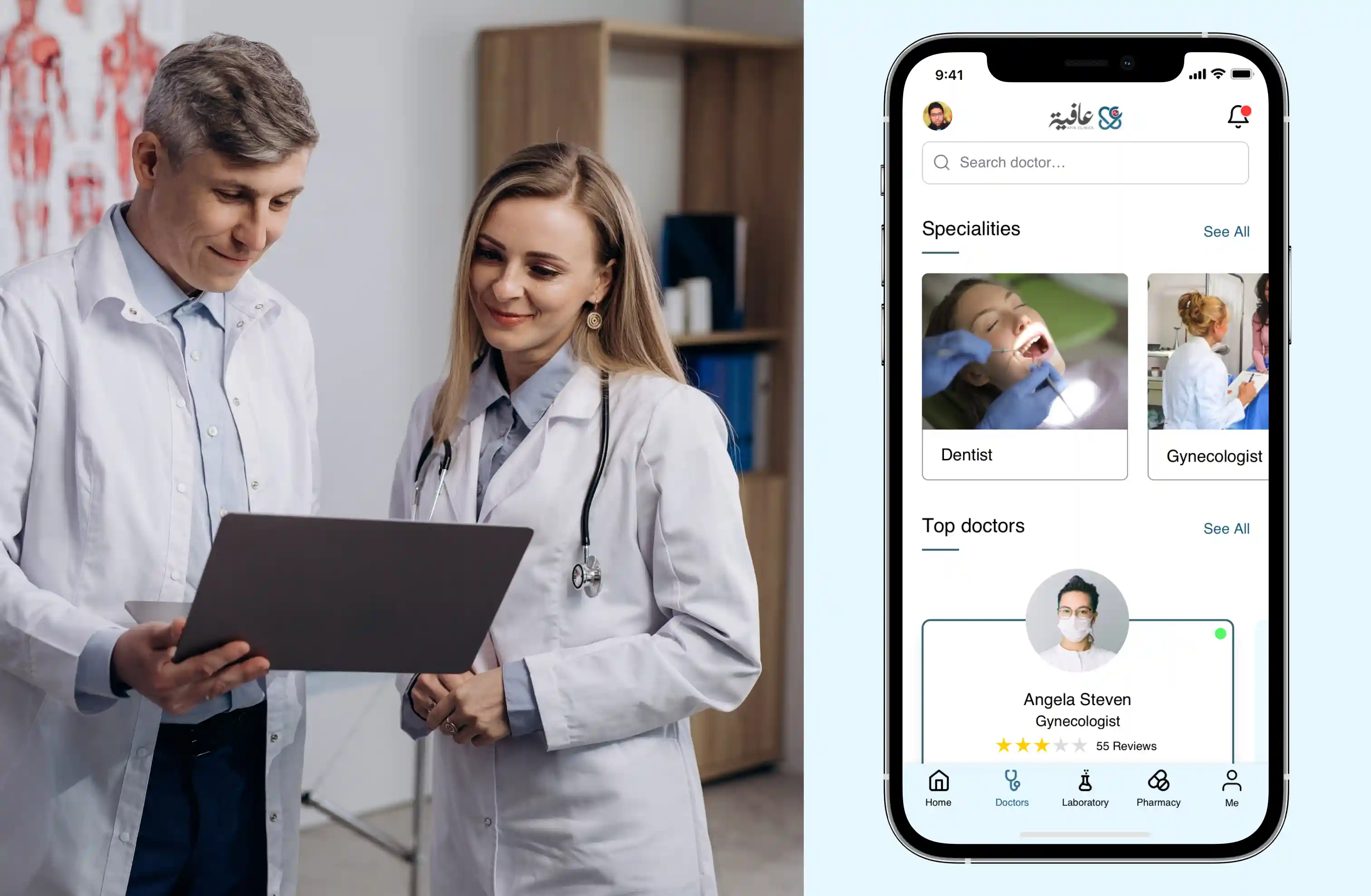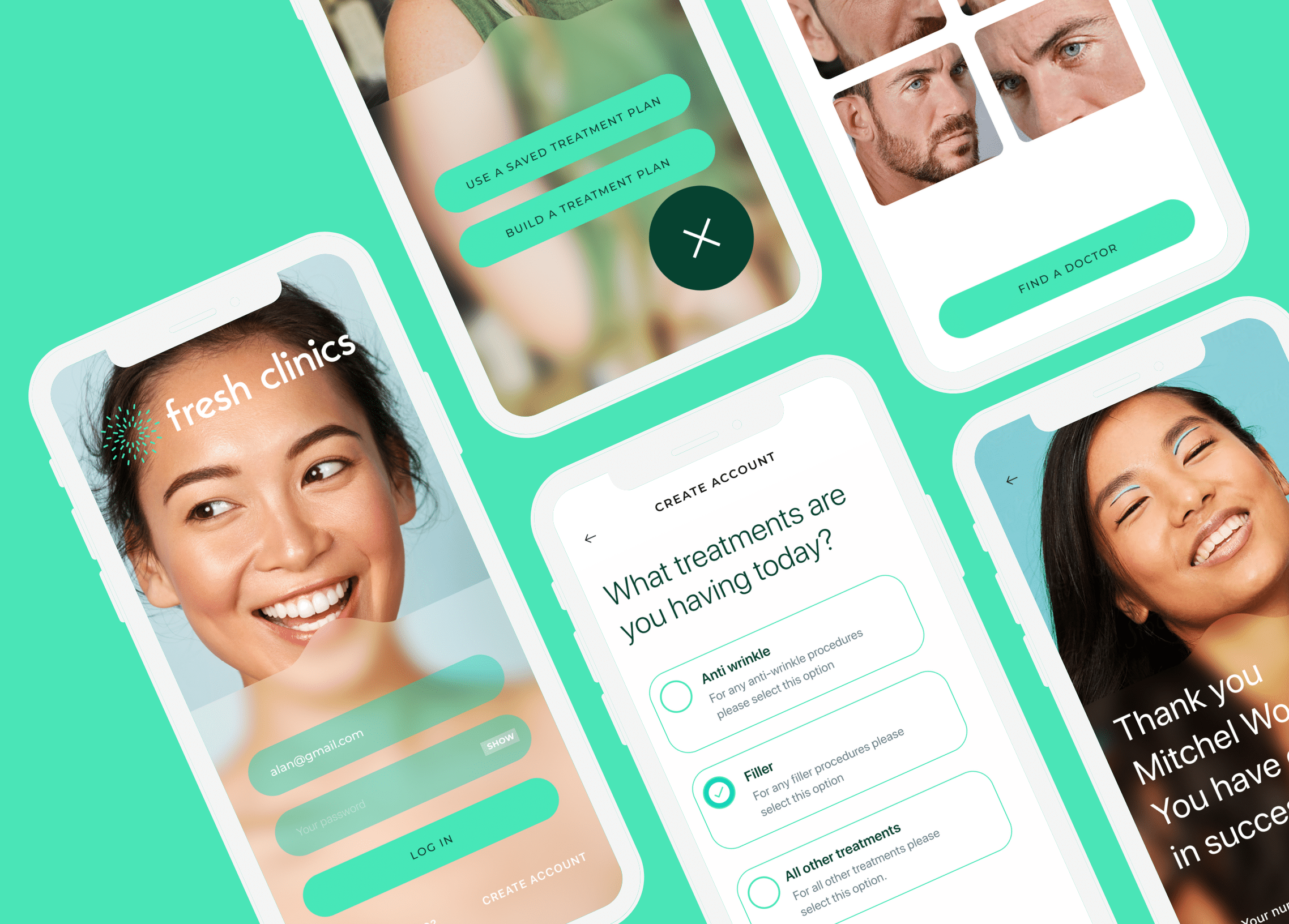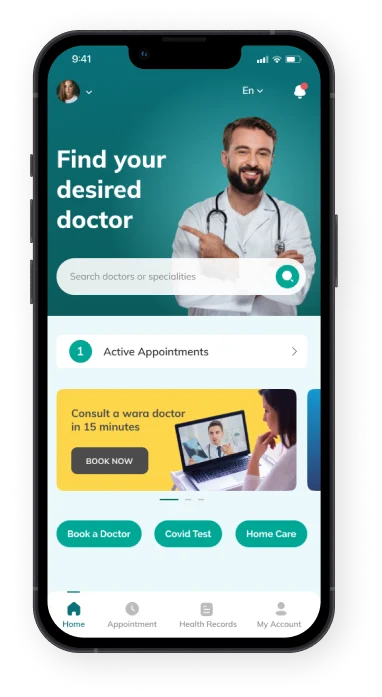The Future of Medical Care: Why Clinics Required a Mobile App Today
As the medical care landscape continues to evolve, facilities face installing stress to adjust to person assumptions for better benefit and access. The integration of mobile applications can serve as a vital approach for improving client involvement and simplifying procedures. By leveraging modern technology to enhance interaction and supply crucial services, clinics not just resolve present needs however likewise position themselves for future success. The effects of this shift extend beyond plain functional effectiveness; they can redefine client partnerships and care delivery in extensive means. What might this makeover resemble for both individuals and centers?
Transforming Individual Expectations
As the landscape of medical care advances, person expectations are undertaking a considerable improvement. Today's individuals are progressively looking for ease, ease of access, and individualized care.
Additionally, clients are coming to be extra informed and empowered, usually researching conditions and treatments on the internet prior to assessments. This enhanced awareness is combined with a need for transparency in medical care processes, including expense estimates and treatment choices. Because of this, service providers are urged to adjust by embracing electronic tools that enhance the person experience.
The expectation for reliable and prompt interaction has actually never ever been greater, with several people considering responsiveness a critical element of high quality care. mobile app for clinics. In this progressing landscape, healthcare companies have to recognize these transforming assumptions and leverage mobile applications to cultivate a much more patient-centric approach, ensuring that they not just satisfy however exceed the criteria established by today's enlightened customers
Enhancing Person Interaction

Mobile applications assist in communication between patients and doctor, allowing real-time visit scheduling, suggestions for drug adherence, and straight messaging attributes. These capabilities not just enhance ease however likewise build a sense of liability amongst patients. Mobile applications can provide educational content tailored to individual needs, aiding individuals much better understand their problems and therapy options.
The integration of gamification components within medical care applications can additionally encourage clients to take part in healthy habits, strengthening positive lifestyle adjustments. By tracking progression and gratifying success, clients are more most likely to remain dedicated to their wellness goals. Eventually, improving patient involvement via mobile applications causes enhanced wellness end results, better patient fulfillment, and a more collaborative health care experience. Centers that prioritize this aspect will likely see a substantial influence on the top quality of care provided.
Simplifying Clinic Operations
Simplifying clinic operations is crucial for enhancing process efficiency and maximizing person treatment. The application of mobile applications can dramatically reduce management worries, enabling medical care service providers to concentrate more on patient communications. By automating appointment organizing, individual check-ins, and payment processes, facilities can decrease wait times and boost total operational performance.
Mobile applications additionally facilitate real-time accessibility to person documents, enabling healthcare specialists to make enlightened choices promptly. This immediacy not just boosts the quality of care but also decreases the possibility of mistakes linked with misplaced or obsoleted information. Leveraging mobile modern technology supports a much more well organized method to taking care of patient follow-ups and treatment plans, ensuring that no critical steps are forgotten.
Furthermore, mobile applications can streamline inventory management by offering centers with devices to monitor drugs and supplies successfully. This allows for timely replenishment and assists prevent interruptions in individual treatment because of equip lacks. By integrating these performances into their daily procedures, centers can create a investigate this site more reliable and natural environment, eventually bring about boosted individual outcomes and satisfaction. Embracing mobile technology is not just a fad; it is a needed advancement in the health care landscape.
Improving Interaction Networks
Effective interaction is often cited as a cornerstone of high quality health care delivery. In today's hectic medical environment, mobile applications can substantially enhance interaction networks in between discover here centers, patients, and health care service providers. By incorporating mobile apps into their operations, clinics can assist in real-time interactions, ensuring that people obtain timely information concerning their visits, examination results, and therapy plans.
Mobile applications also equip patients to connect directly with their health care teams through secure messaging attributes. This direct line of interaction fosters a sense of interaction and enables for prompt information of problems, which can lead to far better adherence to treatment protocols. Push notices can advise clients of upcoming consultations or medicine schedules, decreasing no-show prices and boosting total wellness results.

Staying Competitive in Healthcare
In a rapidly progressing healthcare landscape, organizations need to prioritize technology and flexibility to preserve an affordable side. The combination of mobile applications right into health care solutions is no more optional; it is important for facilities intending to enhance patient involvement, improve procedures, and improve general solution shipment.
As patients significantly rely upon digital platforms for health and wellness monitoring, centers that fall short to take on mobile modern technology danger dropping behind. A well-designed mobile app can use attributes such as visit browse around these guys scheduling, telemedicine appointments, and access to clinical documents, supplying clients with benefit and cultivating commitment.

Competitors are additionally buying mobile remedies, so staying in advance needs continuous enhancement and remaining informed concerning technological developments. Facilities should not just execute mobile applications yet likewise participate in routine updates and improvements. Eventually, the successful assimilation of mobile technology will certainly identify forward-thinking health care companies and set the criteria for patient-centric treatment in a digital world.
Verdict
In verdict, the combination of mobile applications in centers is necessary to address the evolving landscape of patient expectations. Ultimately, the strategic implementation of mobile applications stands for a critical action toward delivering accessible and tailored medical care, therefore meeting the requirements of today's empowered patients.
Inevitably, improving client involvement via mobile applications leads to enhanced health end results, higher client complete satisfaction, and a more joint health care experience.Mobile apps additionally help with real-time accessibility to individual records, making it possible for health care professionals to make enlightened decisions quickly. In today's busy medical setting, mobile applications can substantially enhance interaction channels between facilities, individuals, and healthcare providers.Mobile applications also equip patients to interact straight with their healthcare groups through safe messaging features. Eventually, the critical execution of mobile apps stands for a crucial step towards delivering individualized and accessible medical care, thereby satisfying the demands of today's empowered clients.
Comments on “Best Practices for Creating a Mobile App for Clinics That Satisfies Patient Demands”